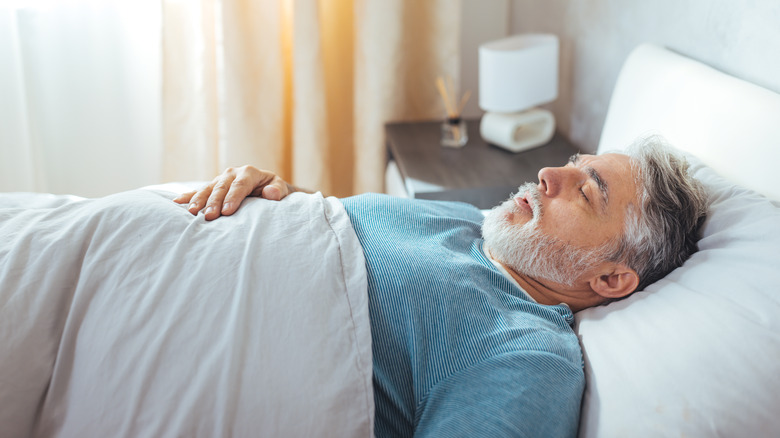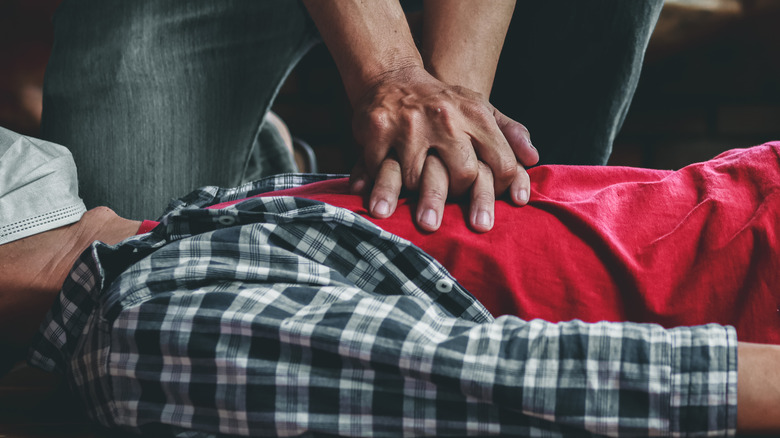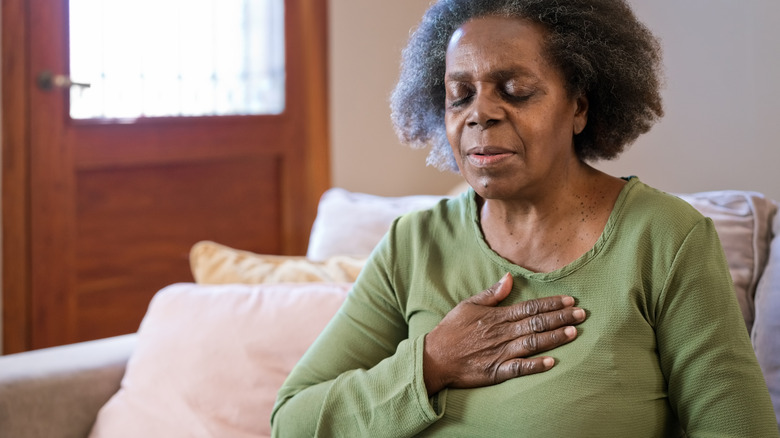The Most Common Reason People Die In Their Sleep
Most people probably won't be able to choose when they die; but, certainly, a more peaceful way to die might be while sleeping. You might imagine someone passing without having much pain because they're in their most relaxed state. If you spend one-fourth of your living days sleeping, some people are likely to die during sleep.
Of course, this shouldn't make you fear going to sleep. It's rare for people to die unexpectedly while they sleep unless there is an underlying cause, according to The Wall Street Journal. Instead, a few health factors might come into play, such as the health of your heart. Coronary heart disease is the main structural heart disease that causes sudden cardiac death. According to a 2018 article in the Journal of the American Heart Association, 15% to 20% of deaths result from sudden cardiac death. Of those sudden cardiac deaths, 22% of them occurred at night, according to a 2021 study in the journal Heart Rhythm. Although you're not more likely to die of cardiac arrest at night, this is the most common reason why people die while asleep.
What is cardiac arrest?
Sudden cardiac arrest occurs when the electrical system in your heart malfunctions and causes an irregular heartbeat, according to Medline Plus. People experiencing cardiac arrest will sometimes feel dizzy before fainting because the heart stops beating. Cardiac arrest differs from a heart attack. While a heart attack refers to blood being cut off to an artery, the heart will continue to beat. Yet people who've had a heart attack are at a greater risk for cardiac arrest, according to the American Heart Association.
It's difficult to diagnose cardiac arrest before it occurs, although some people might have chest pain, shortness of breath, or nausea about an hour before cardiac arrest. Doctors typically diagnose cardiac arrest after an event occurs (via Medline Plus).
The 2021 study in Heart Rhythm found that women were more likely than men to suffer from sudden cardiac death at night. People taking antidepressants, antihistamines, and other medications that affected the central nervous system were also at a greater risk for cardiac death at night, and so were people with COPD (chronic obstructive pulmonary disease) or asthma.
What increases the risk that you'll die in your sleep?
People with a healthy heart can experience cardiac arrest, according to Mayo Clinic. However, people with heart conditions such as coronary artery disease, heart valve disease, or structural heart conditions are at a greater risk for sudden cardiac arrest. You're also at a greater risk for sudden cardiac arrest if you have high blood pressure, chronic kidney disease, diabetes, obesity, or high cholesterol. People who are inactive, smoke, or use illegal drugs also are at an increased risk. You also have an elevated risk of sudden cardiac arrest as you get older.
Even though cardiac arrest can occur in a healthy heart, you can reduce your risk by quitting smoking, eating a healthy diet, and managing your blood pressure and cholesterol. People who've survived cardiac arrest might have an implantable cardioverter defibrillator (ICD) inserted into their chest to control their heart rate. You can also get a genetic test for long QT syndrome, which can cause cardiac arrest.



